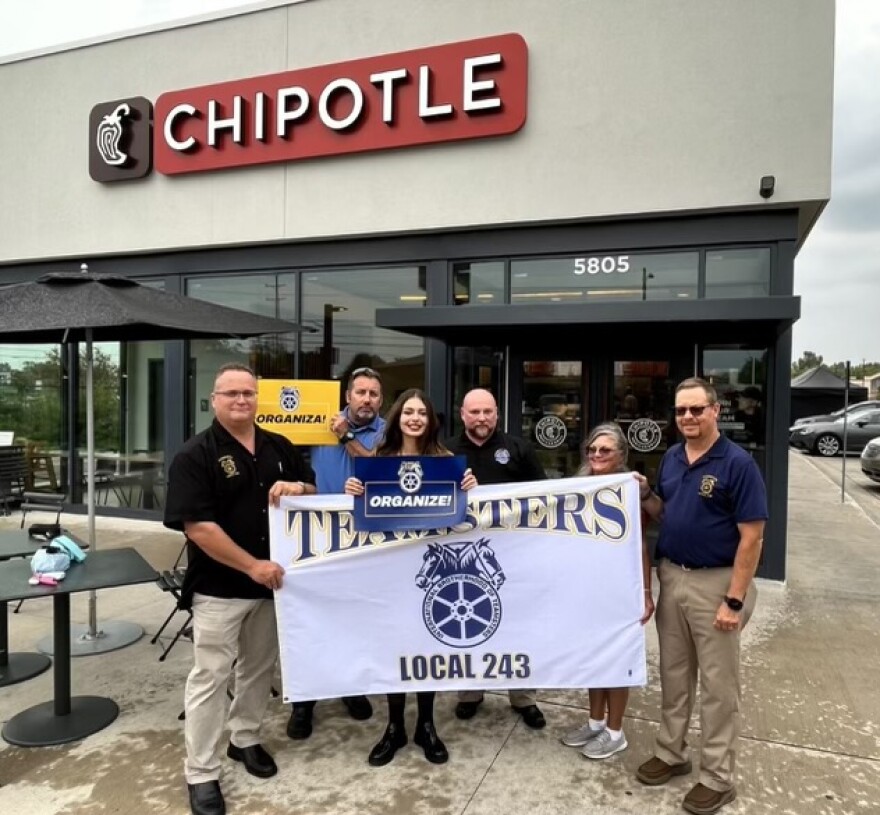Announcements 🗓
Want to organize your workplace but don’t know where to start? Join the Emergency Workplace Organizing Committee’s foundational training series, starting Tuesday, November 15 and running weekly on Tuesdays until December 6! In 90-minute sessions over four weeks, we will discuss the problems that workers face at work and how you can come together with your co-workers to address them. You will learn how to prepare yourself and your co-workers to take collective action, building a democratic organization with your co-workers that can negotiate with the boss over your working conditions. Space is limited to 200 participants, so sign up now! Register today.

The story of the labor movement is the story of workers fighting back: asserting their power, their rights, and their value as human beings. When we organize in our workplaces, we are carrying on a long and proud tradition.
Fighting back often means retaliation from the boss, who may threaten people’s livelihoods and exacerbate the very conditions which workers are organizing to improve. Union-busting campaigns draw upon a well-worn set of tactics to create fear and undermine solidarity.
The anti-union campaign is a serious thing, but it is far from invincible. When we know what to expect, we can prepare for and even organize around it. Understanding the boss’s goals and tools is the start of standing strong together. Discussing and anticipating how the bosses will react helps mitigate the impact of attacks on the union. When the boss tries to undermine solidarity with threats and recriminations, workers can grow solidarity by coming together to face the boss campaign with determination and unity. We can support each other through the worst of the fight and continue to nurture a better vision of the workplace.
Over the last year, we’ve seen this scenario play out over and over again. When workers have prepared themselves and each other for company attacks, the power of the boss campaign fails. Historic union victories have now been won at Amazon, Starbucks, Chipotle, Trader Joe’s, and more, because the workers were ready and united. We have great power, greater power than the bosses, when we come together with purpose. Solidarity is an unstoppable force.
World of Work 🌍
CA: Following a three-day strike by 1,000 restaurant workers at San Francisco International Airport, Unite Here Local 2 workers voted to ratify a new contract that would increase their wages by $5 an hour, in addition to providing them with free family health care, a $1,500 bonus, and union pensions.
NC: Piedmont Health Services Medical Providers United voted 91 percent to form a union, an astounding margin for the country’s second least-unionized state. “Ultimately, it was about creating conditions where we felt safe as residents,” Brady recalled. “And seeing how that affected patient care as well was pretty stark, knowing the hours that we work and the safety issues. We had to take it into our own hands as well.”
KS: Workers at Chipotle in Lawrence, Kan. are unionizing after facing difficult working conditions for years. The workers are forming an independent union but have been working with EWOC and unionized Chipotle workers in Lansing on a plan to fight back after intense pushback from management. The union is now filing an unfair labor practice complaint as they continue the fight for a fair process.
Week in Labor History 📚
October 25, 1949: A 177-day-long strike between the International Longshoremen’s Worker Union (ILWU) and the longshoreman employers in Hawaii over wage disparity with their mainland counterparts ends in victory. Workers went on strike after learning that longshoremen on the mainland West Coast of the U.S. were being paid $1.82 per hour while Hawaii longshoremen were only being paid $1.40, despite doing the same job for the same employer. In defiance of scabbing, attempts to break the picket line, arrests, and court actions, over 5,000 longshoremen refused to work and closed off all goods to Hawaii. For 177 days, union soup kitchens and “scrounging committees” worked around the clock to feed struggling strikers and their families. The ILWU victory gave Hawaii longshoremen similar recognition and status won by the mainland longshoremen a decade earlier in 1934.
Solidarity,
Team EWOC



